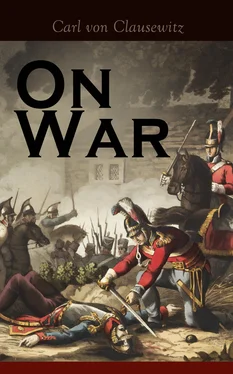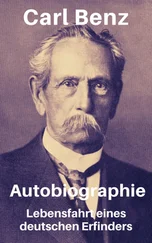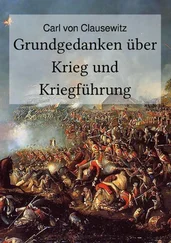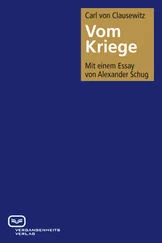“You young ones may talk; but my older head is shaking on my shoulders,” replied the General. 3
After the close of the Russian campaign Clausewitz remained in the service of that country, but was attached as a Russian staff officer to Blücher’s headquarters till the Armistice in 1813.
In 1814, he became Chief of the Staff of General Walmoden’s Russo-German Corps, which formed part of the Army of the North under Bernadotte. His name is frequently mentioned with distinction in that campaign, particularly in connection with the affair of Goehrde.
Clausewitz re-entered the Prussian service in 1815, and served as Chief of the Staff to Thielman’s corps, which was engaged with Grouchy at Wavre, on the 18th of June.
After the Peace, he was employed in a command on the Rhine. In 1818, he became Major-General, and Director of the Military School at which he had been previously educated.
In 1830, he was appointed Inspector of Artillery at Breslau, but soon after nominated Chief of the Staff to the Army of Observation, under Marshal Gneisenau on the Polish frontier.
The latest notices of his life and services are probably to be found in the memoirs of General Brandt, who, from being on the staff of Gneisenau’s army, was brought into daily intercourse with Clausewitz in matters of duty, and also frequently met him at the table of Marshal Gneisenau, at Posen.
Amongst other anecdotes, General Brandt relates that, upon one occasion, the conversation at the Marshal’s table turned upon a sermon preached by a priest, in which some great absurdities were introduced, and a discussion arose as to whether the Bishop should not be made responsible for what the priest had said. This led to the topic of theology in general, when General Brandt, speaking of himself, says, “I expressed an opinion that theology is only to be regarded as an historical process, as a moment in the gradual development of the human race. This brought upon me an attack from all quarters, but more especially from Clausewitz, who ought to have been on my side, he having been an adherent and pupil of Kiesewetter’s, who had indoctrinated him in the philosophy of Kant, certainly diluted—I might even say in homœopathic doses.” This anecdote is only interesting as the mention of Kiesewetter points to a circumstance in the life of Clausewitz that may have had an influence in forming those habits of thought which distinguish his writings.
“The way,” says General Brandt, “in which General Clausewitz judged of things, drew conclusions from movements and marches, calculated the times of the marches, and the points where decisions would take place, was extremely interesting. Fate has unfortunately denied him an opportunity of showing his talents in high command, but I have a firm persuasion that as a strategist he would have greatly distinguished himself. As a leader on the field of battle, on the other hand, he would not have been so much in his right place, from a manque d’habitude du commandement , he wanted the art d’enlever les troupes .”
After the Prussian Army of Observation was dissolved, Clausewitz returned to Breslau, and a few days after his arrival was seized with cholera, the seeds of which he must have brought with him from the army on the Polish frontier. His death took place in November 1831.
His writings are contained in nine volumes, published after his death, but his fame rests most upon the three volumes forming his treatise on “War.” In the present attempt to render into English this portion of the works of Clausewitz, the translator is sensible of many deficiencies, but he hopes at all events to succeed in making this celebrated treatise better known in England, believing, as he does, that so far as the work concerns the interests of this country, it has lost none of the importance it possessed at the time of its first publication.
J. J. GRAHAM ( Col. )
3.“Campaign in Russia in 1812”; translated from the German of General Von Clausewitz (by Lord Ellesmere).
BOOK I.
ON THE NATURE OF WAR
Table of Contents
Table of Contents
We propose to consider first the single elements of our subject, then each branch or part, and, last of all, the whole, in all its relations—therefore to advance from the simple to the complex. But it is necessary for us to commence with a glance at the nature of the whole, because it is particularly necessary that in the consideration of any of the parts their relation to the whole should be kept constantly in view.
We shall not enter into any of the abstruse definitions of War used by publicists. We shall keep to the element of the thing itself, to a duel. War is nothing but a duel on an extensive scale. If we would conceive as a unit the countless number of duels which make up a War, we shall do so best by supposing to ourselves two wrestlers. Each strives by physical force to compel the other to submit to his will: each endeavours to throw his adversary, and thus render him incapable of further resistance.
War therefore is an act of violence intended to compel our opponent to fulfil our will.
Violence arms itself with the inventions of Art and Science in order to contend against violence. Self-imposed restrictions, almost imperceptible and hardly worth mentioning, termed usages of International Law, accompany it without essentially impairing its power. Violence, that is to say, physical force (for there is no moral force without the conception of States and Law), is therefore the means; the compulsory submission of the enemy to our will is the ultimate object. In order to attain this object fully, the enemy must be disarmed, and disarmament becomes therefore the immediate object of hostilities in theory. It takes the place of the final object, and puts it aside as something we can eliminate from our calculations.
Now, philanthropists may easily imagine there is a skilful method of disarming and overcoming an enemy without great bloodshed, and that this is the proper tendency of the Art of War. However plausible this may appear, still it is an error which must be extirpated; for in such dangerous things as War, the errors which proceed from a spirit of benevolence are the worst. As the use of physical power to the utmost extent by no means excludes the co-operation of the intelligence, it follows that he who uses force unsparingly, without reference to the bloodshed involved, must obtain a superiority if his adversary uses less vigour in its application. The former then dictates the law to the latter, and both proceed to extremities to which the only limitations are those imposed by the amount of counter-acting force on each side.
This is the way in which the matter must be viewed and it is to no purpose, it is even against one’s own interest, to turn away from the consideration of the real nature of the affair because the horror of its elements excites repugnance.
If the Wars of civilised people are less cruel and destructive than those of savages, the difference arises from the social condition both of States in themselves and in their relations to each other. Out of this social condition and its relations War arises, and by it War is subjected to conditions, is controlled and modified. But these things do not belong to War itself; they are only given conditions; and to introduce into the philosophy of War itself a principle of moderation would be an absurdity.
Two motives lead men to War: instinctive hostility and hostile intention. In our definition of War, we have chosen as its characteristic the latter of these elements, because it is the most general. It is impossible to conceive the passion of hatred of the wildest description, bordering on mere instinct, without combining with it the idea of a hostile intention. On the other hand, hostile intentions may often exist without being accompanied by any, or at all events by any extreme, hostility of feeling. Amongst savages views emanating from the feelings, amongst civilised nations those emanating from the understanding, have the predominance; but this difference arises from attendant circumstances, existing institutions, &c., and, therefore, is not to be found necessarily in all cases, although it prevails in the majority. In short, even the most civilised nations may burn with passionate hatred of each other.
Читать дальше












